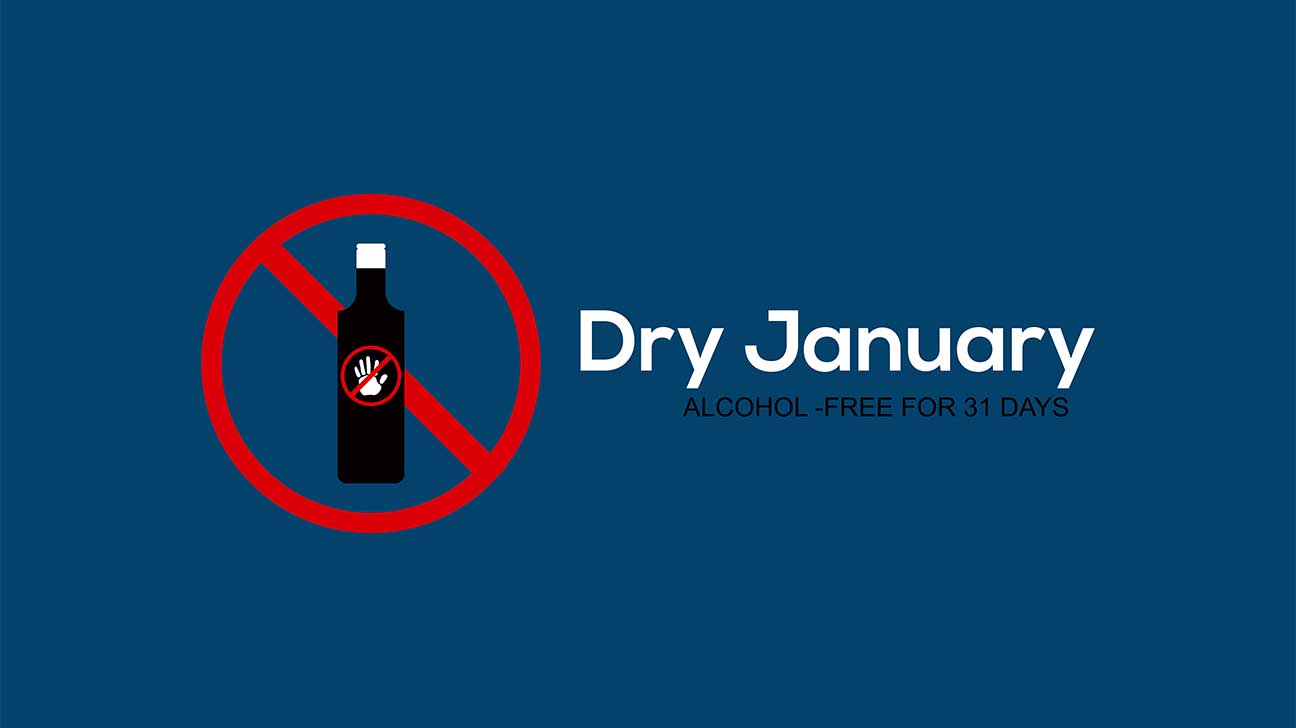
For some people, participating in Dry January can lead to withdrawal symptoms as the body detoxes from alcohol, especially after periods of heavy drinking over the holidays.
Dry January refers to refraining from drinking alcohol for the first month of the New Year.
What started as a campaign from the United Kingdom’s Alcohol Concern in 2012 has now become a household term as many people are using this concept to kick-off 2022.
How To Handle Withdrawal Symptoms If You’re Participating In Dry January
If you’re planning on participating in Dry January, you should be prepared to manage some of the withdrawal symptoms.
Alcohol withdrawal can lead to a number of physical and mental issues. But keep in mind that this process is temporary and manageable.
Physical Withdrawal Symptoms
The physical symptoms of alcohol withdrawal are often the most unpleasant and pressing issues.
If you’ve recently consumed alcohol, you’ll likely develop symptoms within a few hours of last use, and symptoms may continue for about three days.
Physical withdrawal symptoms from alcohol include:
- fatigue
- feeling shaky, jumpy, or unstable
- nausea and vomiting
- sweating, clammy skin
- dilated pupils
- headache
- insomnia
- loss of appetite
Serious physical withdrawal symptoms you should seek help for include:
- fever
- seizures
- profuse sweating
- rapid heart rate
Mental/Emotional Withdrawal Symptoms
You might also experience some mental and emotional effects after alcohol cessation.
These mental withdrawal symptoms include:
- anxiety
- depression
- irritability
- mood swings
- nightmares
- worsened mental health issues
- paranoia
More serious mental effects of withdrawal may point to delirium tremens, the most severe form of alcohol withdrawal.
This can be characterized by:
- hallucinations
- paranoia
- severe confusion
- disorientation
Managing The Withdrawal Process During Dry January
Any time you’re cutting out a substance or behavioral habit in your life — social media, sugars, smoking, etc. — you’re going to feel the effects afterward.
Alcohol’s effects build over time and have a cumulative effect, whether you consume alcohol only occasionally or frequently, leading to issues such as cancer and heart disease.
This is why movements such as Dry January and other efforts to curb alcohol use can have profound benefits on your overall physical and mental well-being.
Factors That Affect The Withdrawal Process
The withdrawal process from alcohol will vary based on your level of consumption. A person who drinks alcohol daily will likely feel stronger effects than the occasional drinker.
However, even those who drink only socially a few times a month experience the effects of alcohol, so this doesn’t strictly apply to people who binge drink or drink heavily.
You should also consider any polysubstance use, or using more than one substance at once.
If you or someone you love tend to mix alcohol and lorazepam, alcohol and hydrocodone, or another combination, participating in Dry January may cause added withdrawal effects.
Is It Safe To Go Through Alcohol Withdrawal At Home?
If you’re dealing with milder symptoms such as minor nausea, headaches, sleeping issues, and other effects, it can be safe to detox at home.
But if you know you’re going to be detoxing from a higher quantity of alcohol consumption, quitting cold turkey can be dangerous for your health.
Some of the more serious physical and mental withdrawal symptoms may require professional attention in a medical setting or at a drug rehab center.
If you’re not sure what the right option is, take caution and get the medical advice of your general practitioner or an addiction treatment specialist.
Those detoxing from heavy alcohol use may benefit from a medical detox program or medication-assisted treatment.
How To Follow Through With Dry January
For many people, “getting sober” as a New Year’s resolution in recovery can be too vague to be realistic.
Dry January can be a good first action step for someone who wants to quit or cut back on alcohol consumption.
The best way to follow through with a pledge to participate in Dry January is to create a network of support to help you to get through the month alcohol-free.
For those who require a professional level of care, this may include:
- medical detox from alcohol
- an inpatient treatment program
- a structured outpatient program
- therapy or group sessions
Others may benefit from supports such as:
- self-help groups like Alcoholics Anonymous that help to address common causes of addiction relapse
- family and friend accountability
- using SMART goals as a means of creating practical steps to pursue Dry January
Start Your Recovery With Dry January
The New Year is a chance to start healthier habits. If you’d like to participate in Dry January but you’re not sure how to start, we’re here to help.
A drug and alcohol detox center or rehab program can help to kickstart your recovery. Reach out to our helpline today to learn about your treatment options.
Article Sources- Cleveland Clinic — New Study: No Level of Alcohol — Even Casual Drinking — Is Entirely Safe
https://health.clevelandclinic.org/new-study-no-level-of-alcohol-even-casual-drinking-is-entirely-safe/ - Harvard Health Publishing — Alcohol Withdrawal
https://www.health.harvard.edu/a_to_z/alcohol-withdrawal-a-to-z - National Center for Biotechnology Information — What is Dry January?
https://www.ncbi.nlm.nih.gov/pmc/articles/PMC4684010/ - National Institute on Alcohol Abuse and Alcoholism (NIAAA) — National Institute on Alcohol Abuse and Alcoholism (NIAAA)
https://pubs.niaaa.nih.gov/publications/arh22-1/61-66.pdf - U.S. National Library of Medicine: Medline Plus — Alcohol withdrawal
https://medlineplus.gov/ency/article/000764.htm


